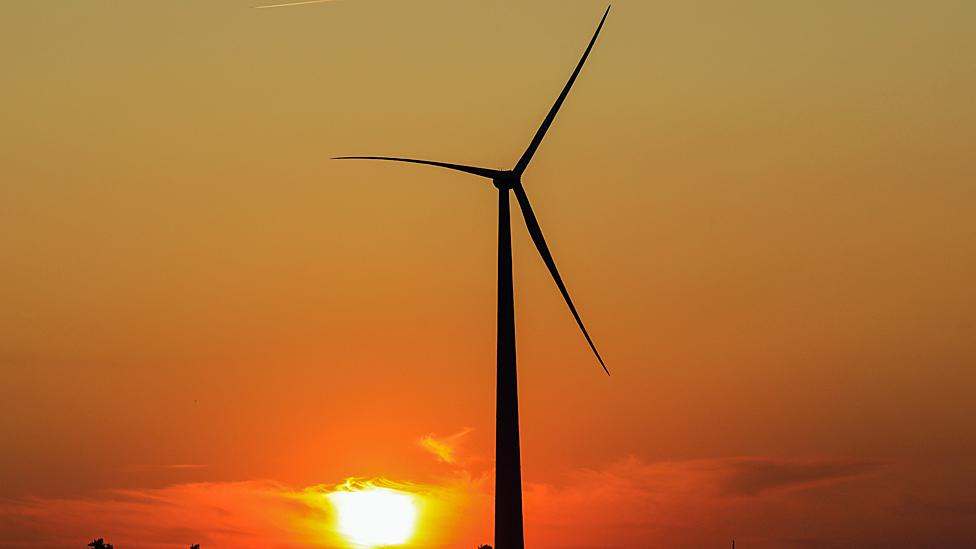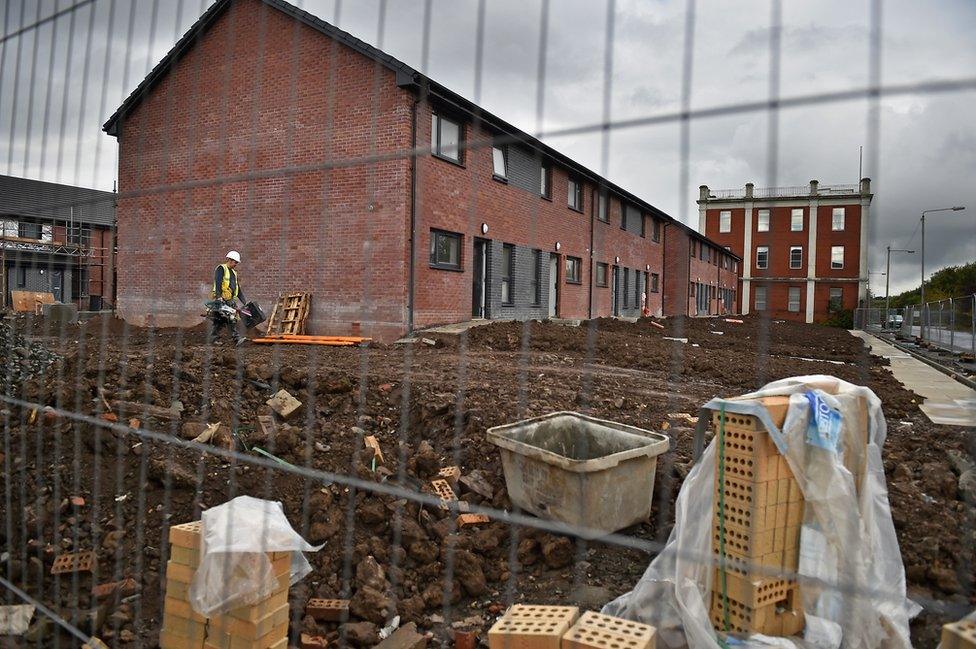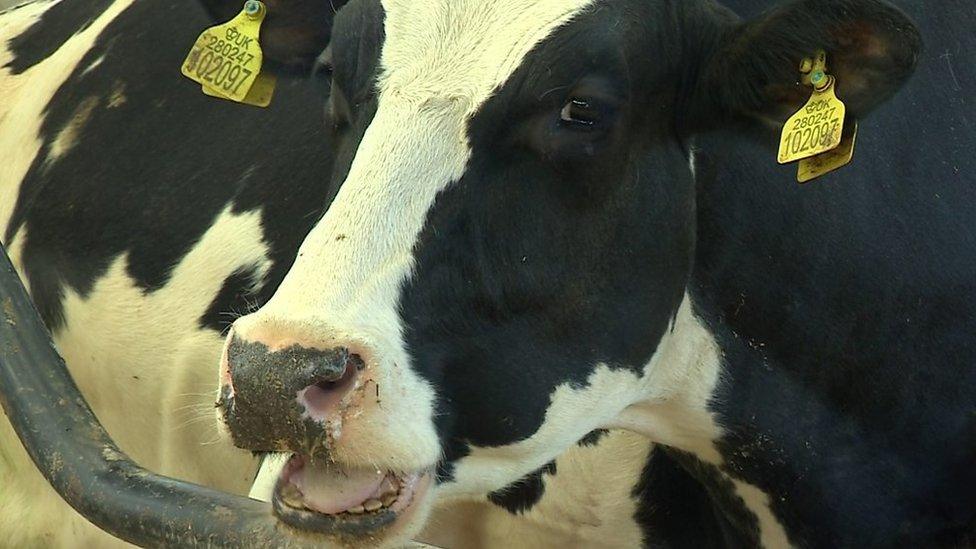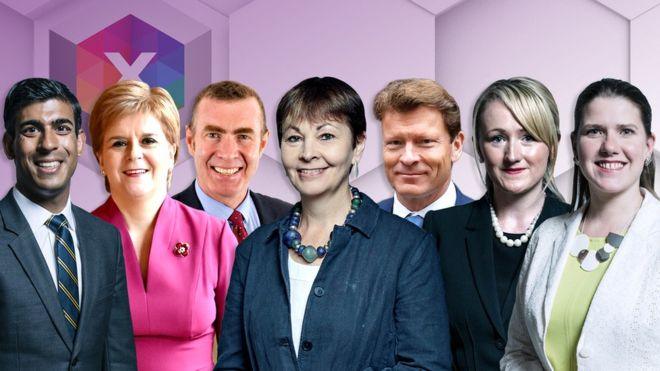General election 2019: Question Time under-30s fact-checked
- Published
Under-30s Question Time - The highlights
Representatives from seven parties took part in a Question Time special with an audience of 18- to 30-year-olds.
BBC Reality Check looked at some of their claims during the 90 minute-long debate in York.
The Conservatives' Robert Jenrick said: "We've built 450,000 affordable homes in this country since 2010. That's more on average per year than the Labour government did before us from 1997 to 2010."
Reality Check: It's true that since 2010 about 450,000 affordable homes have been added to the housing supply in England. Not all of them are newly built - some have been converted from commercial properties or by splitting one dwelling up into two or more.
That is slightly more on average a year than the previous Labour government - 50,107 a year compared with 42,854 between 1997 and 2010.
But these figures cover all types of affordable housing including homes for social rent. And that means looking at the total number of affordable houses added each year doesn't tell the whole story.
Since 2010, the balance has shifted away from homes for social rent and towards more expensive affordable rented homes, which make up the majority of those added under the Conservatives.
The Affordable Rented Homes scheme stipulated that rents should be a maximum of 80% of the market rate. Homes for social rent are generally more like 50% of the market rate.
Just under half as many homes for social rent were added over the past nine years as were added in the nine years prior to that.
Labour's Angela Rayner said: "Our priority has to be to fix the four million children in poverty."
Reality Check: There is no single measure of poverty but it's true to say there were about four million children living in low-income households in 2017-18, according to government statistics, external.
In this case, low-income means less than 60% of the median income (half of people earn more than the median and half earn less).

Liberal Democrat leader Jo Swinson said: "The Conservatives literally abolished the department of climate change, sold off the green investment bank and stopped onshore wind."
Reality Check: These claims are largely true.
The Department of Climate Change was abolished - but the Conservatives would argue that climate is now covered by the department for Business, Energy, and Industrial Strategy (BEIS) which introduced the target to reach net-zero emissions by 2050.
The Green Investment Bank was sold off in 2017 - attracting controversy at the time.
New onshore wind installations fell by nearly 80% in 2018, according to figures from RenewableUK, external. This followed a decision by the Conservatives to end subsidies for new onshore wind projects in 2016. The government has chosen to back offshore wind instead.

The SNP's Humza Yousaf said: "We have built 87,000 affordable homes, the vast majority on social rent, and we're on target to meet our 50,000 home target by 2021."
Reality Check: Official figures, external show that 86,157 affordable houses have been completed in Scotland since 2007.

The Scottish government has set a target to build 50,000 affordable homes between 2016 and 2021. After three years of that programme, it is halfway to that target but the Chartered Institute of Housing said in October that the rate of completions would need to increase further to meet it.

Brexit Party leader Nigel Farage said: "Well-kept pastures, believe it or not, absorb carbon dioxide, so some of the arguments around meat are actually I think, slightly false arguments."
Reality Check: Yes, but this is a complex issue. Dung from grazing animals can increase the amount of carbon captured in soils depleted by over-intensive farming. But that soil becomes saturated with carbon, so if more dung is deposited beyond that point, it continues to cause environmental problems.
What's more, carbon is not the only pollutant. Sheep and cows also produce lots of methane - another powerful greenhouse gas. Because of the complexity of the equation between tackling methane and tackling carbon, it's not established firmly yet whether it would be good to stop sheep pastures and replace them with woods.
The independent UK Committee Committee on Climate Change says the number of sheep and cattle in the UK should be reduced by between a fifth and a half to help combat climate change because beef and lamb produce most greenhouse gases from farms.

Plaid Cymru leader Adam Price said to Angela Rayner: "Tuition fees was a Labour policy - have you apologised for it as well?"
Reality Check: It's true that they were first introduced under Labour in 1998 and tripled from £1,000 to £3,000 from 2006.
They were tripled again to £9,000 in England under the Conservative/Liberal Democrat coalition government from 2012.
Green Party co-leader Jonathan Bartley said: "We're on the verge of a mental health epidemic, stressed out, working more hours than ever before."
Reality Check: According to the Office for National Statistics, external, the average weekly hours for full-time workers have remained broadly the same over the past 30 years.
In 1992, the average person worked 38.1 hours compared to 37.3 hours in the latest figures in 2019.
On mental health, an NHS survey shows that between 1993 and 2014 (the last year it was done), the number of 16- to 64-year-olds experiencing common mental health problems in the previous week had increased from 15.5% to 18.9%.


What are the parties promising you?
Use this concise guide to compare where the parties stand on key issues like Brexit, education and the NHS.

Follow election night on the BBC
Watch the election night special with Huw Edwards from 21:55 GMT on BBC One, the BBC News Channel, iPlayer
As polls close at 22:00, the BBC will publish an exit poll across all its platforms, including @bbcbreaking, external and @bbcpolitics, external
The BBC News website and app will bring you live coverage and the latest analysis throughout the night
We will feature results for every constituency as they come in with a postcode search, map and scoreboards
Follow @bbcelection, external for every constituency result
From 21:45 GMT, Jim Naughtie and Emma Barnett will host live election night coverage on BBC Radio 4, with BBC Radio 5 live joining for a simulcast from midnight



- Published29 November 2019
